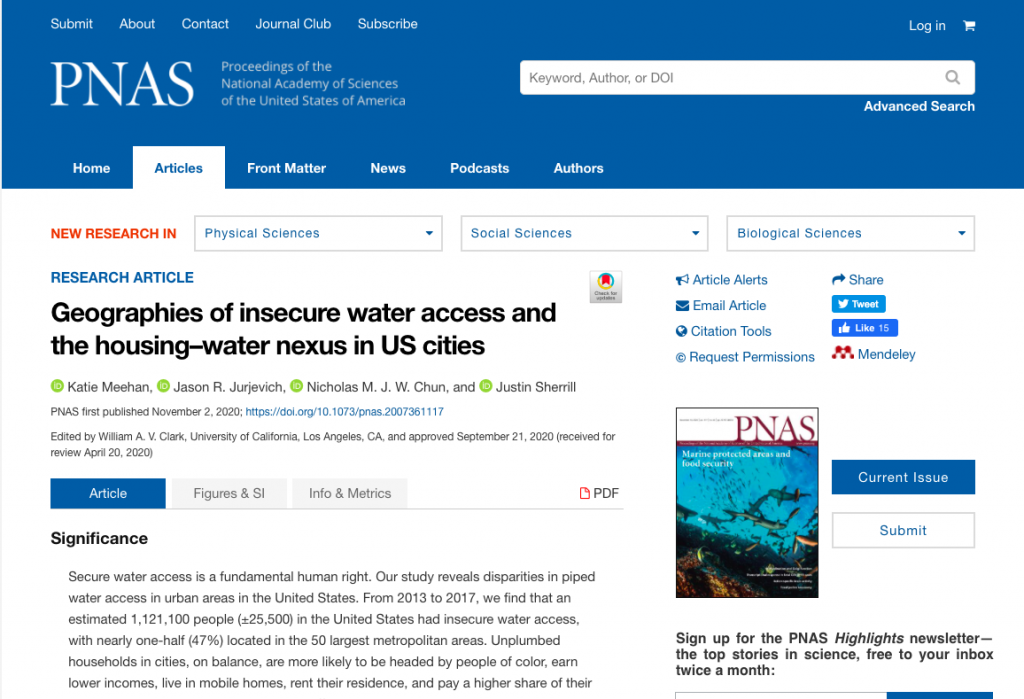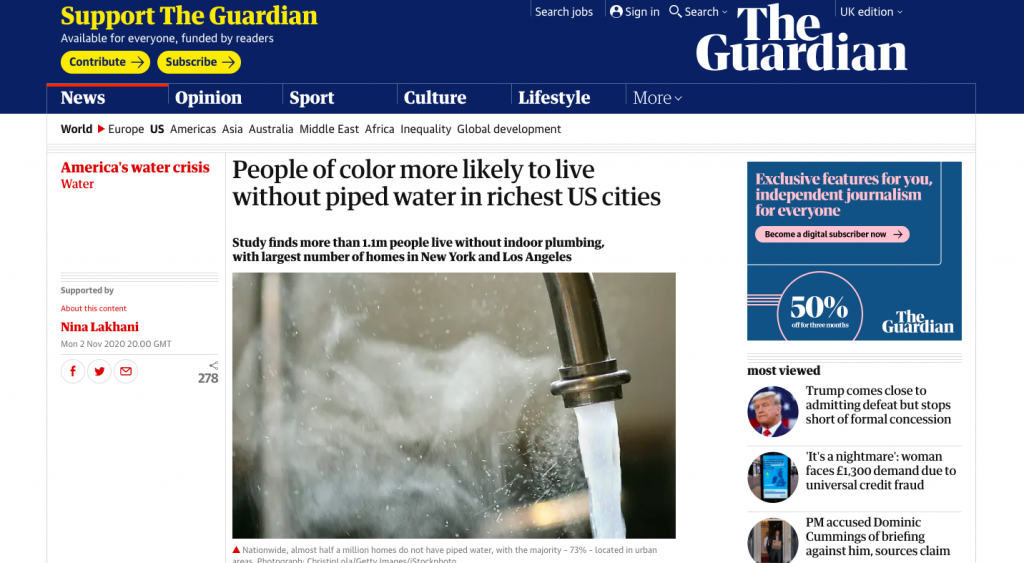
Dr. Katie Meehan, from King’s Department of Geography, has recently been sounding the alarm on water insecurity in the United States. A trailblazer in discussing water accessibility for racialized communities, her work has recently been featured in The Guardian, Proceedings of the National Academy of Sciences of the United States, Circle of Blue, and the King’s podcast “World: we got this.” All of these publications share the same important message: lack of plumbing and sewage infrastructure is a critical issue, precarious housing results in water insecurity, and 47% of households that lack piped water access live in the top 50 cities throughout the country.
Dr. Meehan has pointed out that issues surrounding water accessibility could take different forms. For highly industrialized countries such as the United States, water accessibility comes in the form of piped water. Being unable to pay utility bills for water, or living in a city that is notorious for providing unsanitary water is a familiar roadblock for many Americans. Many countries around the world have adopted the United Nation’s “Human Rights to Water and Sanitation” as part of their state or federal regulations. Since water distribution is regulated at the state level in America, few states such as California have decided to adopt the human rights declaration.
Water insecurity affects the most marginalized groups in the United States. Within households that lack plumbing, “people of colour are almost 35% more likely to lack piped water compared to white, non-Hispanic households” (Meehan et al. 2020, 1). Keep a look out on Meehan’s upcoming publications and media appearances through our blog and her twitter page!
